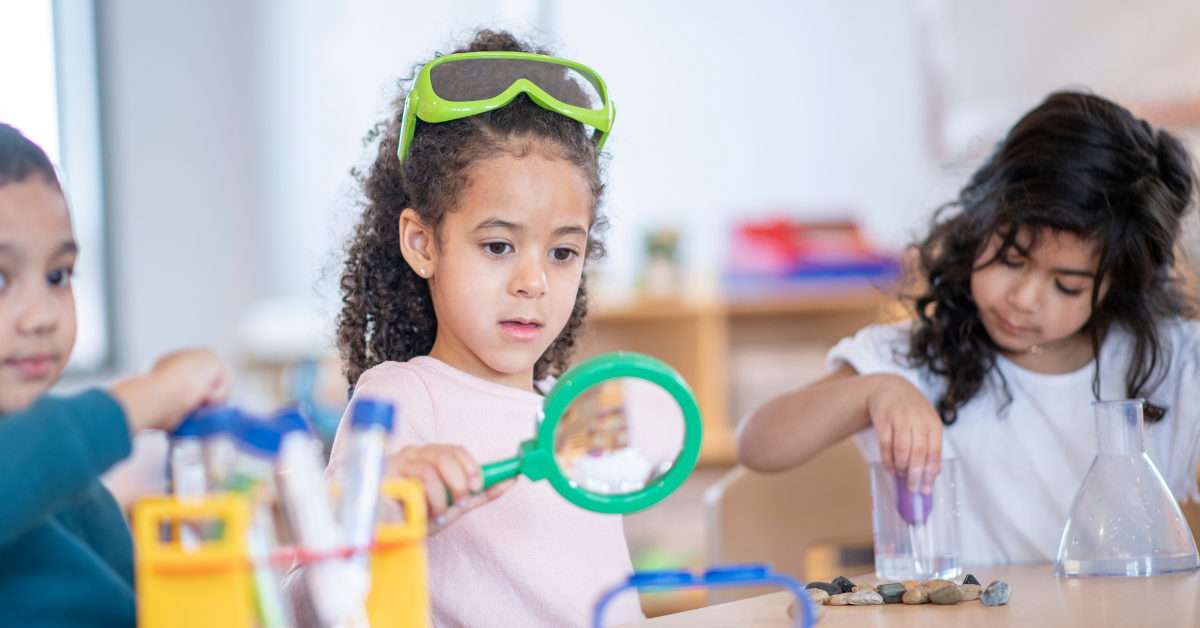The Importance of Science In Early Education

Children are natural-born scientists, constantly exploring and experimenting to make sense of the world around them. From mixing water and dirt to make mud to observing why some objects float while others sink, their innate curiosity drives them to build theories, test ideas, and draw conclusions. This natural inclination makes science a vital part of early childhood education, offering numerous benefits for a child’s growth and development. Let’s take a deeper look at why science is such an important subject in preschools in Coral Gables fl.
Science is rooted in curiosity and inquiry, encouraging children to ask questions and seek their own answers.
One of the main things about science is that is promotes critical thinking. This process of exploration and discovery helps kids evaluate situations, analyze information, and form reasoned conclusions. Whether they’re observing how shadows change throughout the day or studying how caterpillars transform into butterflies, children learn to approach problems methodically, a skill that benefits them across all areas of learning. It’s important to note that during early childhood education, curiosity and inquiry play pivotal roles in shaping a child’s approach to learning. By encouraging exploration and discovery, science lays the groundwork for skills that extend far beyond the classroom.
Science doesn’t just build knowledge—it also helps children develop a range of essential skills.
Science in preschool goes beyond building knowledge, it helps young children develop a variety of essential skills that will serve them throughout their lives. Some key aptitudes fostered through early science education include:
- Motor Skills: Hands-on science activities help preschoolers refine both fine and gross motor skills. Whether they’re pouring water, scooping dirt, or planting seeds, they’re strengthening their hand-eye coordination and learning to control their movements.
- Observation Skills: Children who attend preschools in Coral Gables fl that offer science, develop observation skills by looking closely at nature, watching how things change, or noticing patterns. Whether they’re watching ice melt or the seasons change, they learn how to pay attention to details.
- Teamwork and Cooperation: Many science activities in preschool encourage children to work together. Through these activities, preschoolers learn how to share, take turns, and collaborate with their peers.
- Language and Communication: Discussing what they see and experience in science activities helps preschoolers build their vocabulary and communication skills. They learn new words and practice using them to describe what’s happening around them.
- Patience and Persistence: Science teaches preschoolers that results may take time, helping them learn patience as they wait for experiments to work. They also develop persistence as they try different approaches to solve problems.
At ICS Coral Gables we know that incorporating science into early childhood education is essential for fostering critical thinking, teamwork, and a love of learning. Through engaging classes, children explore science concepts in ways that align with their natural curiosity. Monthly projects and experiments are tailored to their interests, making learning both meaningful and enjoyable. It provides children with the tools to explore the world around them, enhances their literacy, and lays the groundwork for future academic success. Children not only gain valuable knowledge but also develop the confidence and skills to keep asking questions and seeking answers for years to come.
Are you looking for preschools in Coral Gables fl? Contact us today to get more information about our programs.



